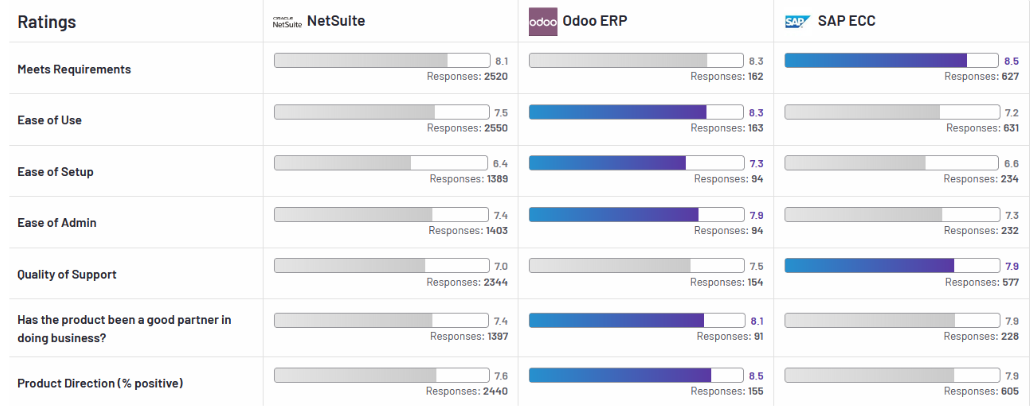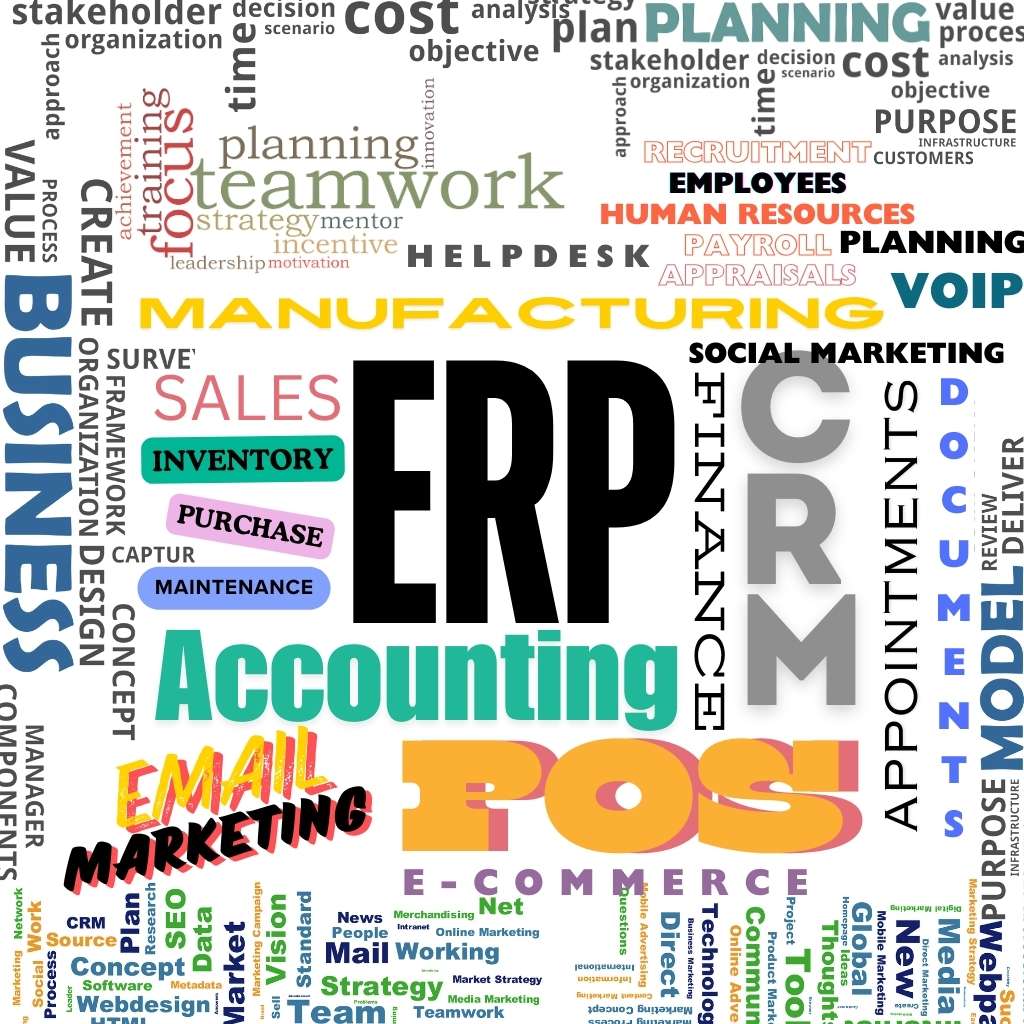Purpose of ERP
The main purpose of ERP is to improve business processes by introducing the information source at one place enhancing data consistency and giving consistency across departments thereby improving the operational efficiency, better resource usage, enhanced reports, and therefore increasing business growth through proper decision-making.
Components of ERP
- Finance Management: Tools for accounting, budgeting, and financial reporting.
- Human Resources Management: Modules for employee records, payroll, recruitment, and performance management.
- Supply Chain Management: Features for inventory control, order processing, procurement, and logistics.
- Customer Relationship Management (CRM): Tools for managing customer interactions, sales tracking, and service delivery.
- Manufacturing Management: Systems for production planning, scheduling, quality control, and product lifecycle management
What is ERP and its importance
ERP (Enterprise Resource Planning) software systems, also known as business management software, assist organizations in automating and managing core business processes to achieve optimal performance. It connects a company's core business processes, such as finance, supply chain, operations, commerce, reporting, manufacturing, and human resources activities, on a unified platform to manage data flow efficiently, ensuring accuracy and productivity in business processes.
Many companies already have a finance and operational system in place. However, these systems are often limited to everyday business processes and do not contribute to future business growth. As companies grow and evolve, their systems must adapt accordingly. This article overviews ERP and highlights the numerous benefits of implementing this system, such as improved agility and efficiency, which can pave the way for your business's future success.
Why is ERP important for business?
There is no one-size-fits-all solution for every business process, but ERP technology continuously improves its ability to integrate processes. Once your processes, systems, and data are seamlessly integrated, you will gain the necessary business intelligence, speed, and flexibility to optimize your operations effectively. Here are three ways an ERP system can enhance your business:
Achieve outstanding performance:
Utilizing AI-powered solutions, you will gain valuable insights to optimize your decision-making process and uncover opportunities to enhance operational performance.
Maximise operational efficiency:
By connecting processes and data, you can enhance employees' visibility and flexibility, enabling them to take prompt action and provide increased value throughout the business.
Prioritise business agility:
ERP solutions are designed to be flexible and scalable, allowing you to anticipate and adapt to operational disruptions or market changes and facilitate collaboration and integration.

What Are the characteristics of ERP, and How do we Manage it?
- Digital transformation
- Process automation
- Modular design
Our Enterprise Resource Planning (ERP) system is a highly adaptable platform that can be deployed in the cloud or on-premises. It includes a range of modules that effectively manage all aspects of your business operations. Arranged by different functional areas, these modules streamline daily business activities and reduce administrative time.
The system is designed to smoothly transition your company into a wholly digital environment. It can import documents in Excel and CSV formats. Our system includes an Optical Character Recognition (OCR) feature that allows easy invoice digitization, saving your accounting team valuable time and effort.
The built-in automation can significantly improve routine processes. Additionally, the platform can create custom automation rules using its customization tools and marketing automation capabilities.
Also read, ERP Failures and Success Factors
In addition, Odoo is actively maintained by a large base of developers to meet constantly evolving customer expectations and provide new inventive applications Since it's open source. With this software, you can fully utilize its professional-grade capabilities, specifically designed to meet the needs of businesses of all sizes. Additionally, you have the advantage of being able to make custom modifications and integrations to manage any business process effectively.
ERP solution | Total cost of ownership (TCO) | Return on investment (ROI) |
SAP | High initial licensing, implementation, customization, maintenance, and support costs. | Substantial if effectively utilized to streamline operations, improve decision-making, and drive growth. |
Oracle Netsuite | Lower upfront costs, ongoing subscription fees, and customization expenses. | Significant if it effectively streamlines processes, enhances visibility, and supports business expansion. |
Odoo | Lower initial licensing costs, customization, implementation, and support costs can vary depending on complexity and features. | Higher if effectively implemented to improve productivity, efficiency, and customer satisfaction. |
G2 Comparison
Reference: https://www.g2.com/compare/netsuite-vs-odoo-odoo-erp-vs-sap-ecc 

There are a few basic distinctions when comparing Odoo with Oracle Netsuite and SAP. The main significant difference is the cost. Odoo is less pricy and affordable than its competitors, making it the perfect fit for medium to large enterprises. However, both SAP and Oracle offer comprehensive features and various capabilities with a large learning curve.
Another vital difference that stands out in Oddo is its modular architecture. It offers an approach that can accommodate and use case and functionality making it easier to maintain and customize. Thus, businesses have more space to add custom features according to their requirements. In contrast, Oracle Netsuite and SAP have a monolithic architecture where complexity increases with customizations.
Odoo ERP has received an impressive rating and reviews, highlighting its popularity among users. It is widely recognised for its exceptional user-friendliness, seamless setup, and efficient administration, surpassing NetSuite in these aspects. Odoo ERP stands out for its exceptional support and clear product roadmap, indicating a promising future and dependable assistance for users. Odoo ERP offers an enticing entry-level price for one user per month, making it a highly appealing choice for small businesses. On the other hand, SAP ECC, is an ideal choice for larger enterprises. Odoo's accessibility and affordability make it a good choice for a balanced ERP solution that satisfies corporate needs.
Maximizing Efficiency with Odoo ERP System
Last but not least, Odoo comes with a user-friendly, intuitive interface that is quite easy to use and navigate. While Oracle and SAP both have a complex UI that requires time to learn, and thorough hands-on training is required before making any change in the system.
Techlyace understands that an enterprise resource planning (ERP) system is a game-changer that drives your business toward unmatched achievement. We provide an integrated, user-friendly ERP solution (Odoo) that simplifies difficult operations. Our system is designed to be straightforward to use, ensuring a smooth experience right from the start.
